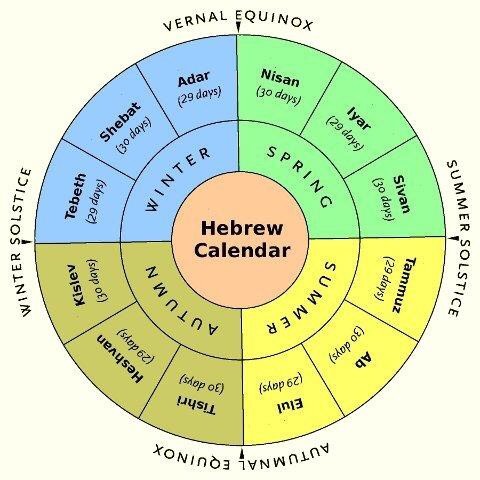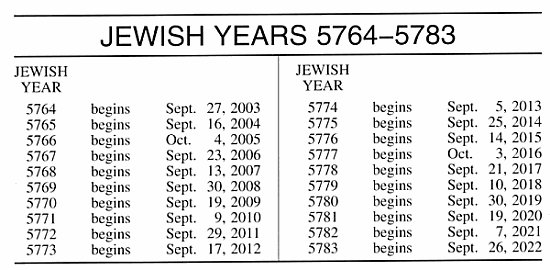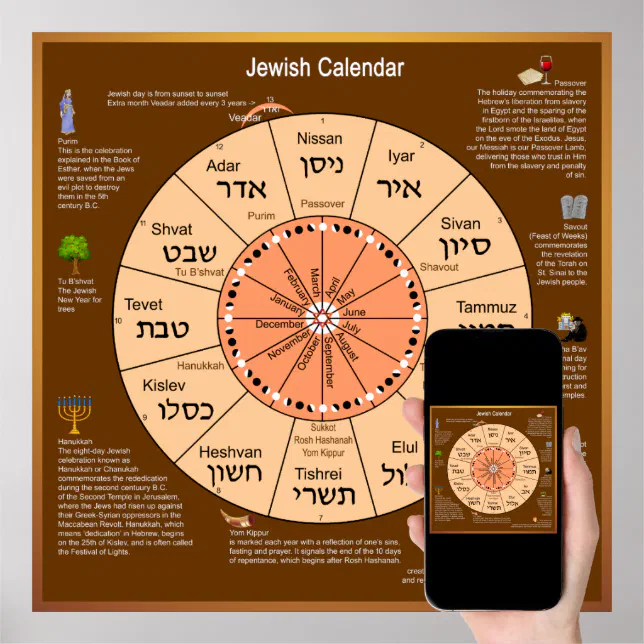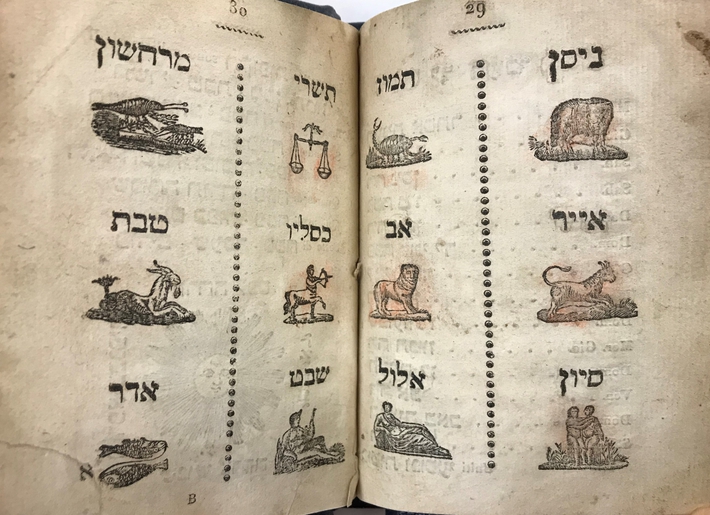The Jewish Calendar: A Journey Through Time And Tradition In 2025 And 2026
The Jewish Calendar: A Journey Through Time and Tradition in 2025 and 2026
Related Articles: The Jewish Calendar: A Journey Through Time and Tradition in 2025 and 2026
Introduction
In this auspicious occasion, we are delighted to delve into the intriguing topic related to The Jewish Calendar: A Journey Through Time and Tradition in 2025 and 2026. Let’s weave interesting information and offer fresh perspectives to the readers.
Table of Content
The Jewish Calendar: A Journey Through Time and Tradition in 2025 and 2026

The Jewish calendar, a lunar-solar system, offers a unique perspective on time, marking both the passage of seasons and the enduring legacy of Jewish tradition. It is a calendar that weaves together astronomy, history, and religious practice, creating a tapestry of observances that resonate deeply with Jewish life. This article will explore the key Jewish holidays in 2025 and 2026, highlighting their significance and how they are celebrated.
2025: A Year of Reflection and Renewal
Rosh Hashanah (September 15-17, 2025): The Jewish New Year, Rosh Hashanah, marks the beginning of the High Holy Days, a period of introspection and spiritual renewal. It is a time to reflect on the past year, acknowledge shortcomings, and seek forgiveness. The traditional rituals include sounding the shofar (ram’s horn), eating apples dipped in honey (symbolizing a sweet new year), and reciting prayers for a good and prosperous year.
Yom Kippur (September 24, 2025): The Day of Atonement, Yom Kippur, follows Rosh Hashanah and is a day of fasting and intense prayer. It is a time for deep introspection, seeking forgiveness from God and others, and striving for spiritual renewal. During Yom Kippur, Jewish people abstain from food, drink, and most physical activities, focusing on prayer and reflection.
Sukkot (October 1-8, 2025): The Feast of Tabernacles, Sukkot, commemorates the Israelites’ journey through the desert after their exodus from Egypt. It is a time of joy and gratitude, marked by the construction of temporary shelters called "sukkahs" where meals are eaten. Sukkot is also a time to celebrate the bounty of the harvest and to reflect on the importance of hospitality and generosity.
Simchat Torah (October 9, 2025): The Rejoicing of the Law, Simchat Torah, marks the end of the annual cycle of Torah readings. It is a day of joyous celebration, filled with dancing, singing, and the completion of the Torah scroll reading. Simchat Torah emphasizes the enduring power of the Torah and its relevance to all generations.
Hanukkah (December 10-18, 2025): The Festival of Lights, Hanukkah, commemorates the rededication of the Second Temple in Jerusalem after its desecration by the Seleucid Empire. The eight-day festival is celebrated by lighting candles on a menorah, eating fried foods, playing dreidel, and giving gifts. Hanukkah symbolizes the triumph of light over darkness and the importance of religious freedom.
2026: A Year of Growth and Celebration
Rosh Hashanah (September 2-4, 2026): The Jewish New Year in 2026 arrives amidst the transition from summer to autumn, a time for reflection and renewal. The rituals and significance of Rosh Hashanah remain the same, offering a fresh start and a chance to embrace the year ahead.
Yom Kippur (September 11, 2026): As the holiest day in the Jewish calendar, Yom Kippur offers a profound opportunity for spiritual growth and self-reflection. The fast and intense prayer provide a space for introspection and seeking forgiveness.
Sukkot (September 19-26, 2026): The celebration of Sukkot in 2026 will once again be a time of joy and gratitude, with the building of sukkahs and the sharing of meals. This festival emphasizes the importance of hospitality and the interconnectedness of humanity.
Simchat Torah (September 27, 2026): The final day of Sukkot concludes with Simchat Torah, a joyous celebration of the completion of the annual Torah reading cycle. The dancing, singing, and festivities highlight the enduring power of the Torah and its relevance to all generations.
Hanukkah (December 1-9, 2026): Hanukkah in 2026 will once again illuminate the winter season with its symbolic message of light overcoming darkness. The lighting of the menorah, the consumption of fried foods, and the playing of dreidel will bring families together to celebrate the triumph of religious freedom.
The Importance of Jewish Holidays: A Legacy of Tradition
Jewish holidays are not merely dates on a calendar; they are living expressions of Jewish identity, faith, and history. They offer a powerful connection to the past, a framework for the present, and a vision for the future. These observances:
- Strengthen Jewish Identity: By participating in shared rituals, traditions, and celebrations, individuals connect with a larger Jewish community and reaffirm their shared heritage.
- Promote Spiritual Growth: The introspection and reflection inherent in many holidays provide opportunities for personal growth, seeking forgiveness, and deepening one’s relationship with God.
- Foster Family Bonds: Many holidays are celebrated with family and friends, strengthening familial ties and creating lasting memories.
- Preserve Cultural Heritage: Jewish holidays keep traditions alive, ensuring that future generations can connect with their history and celebrate their cultural heritage.
Frequently Asked Questions (FAQs) About Jewish Holidays in 2025 and 2026
Q: How do Jewish holidays impact daily life?
A: Jewish holidays can impact daily life in several ways:
- Observances: Some holidays involve specific observances, such as fasting on Yom Kippur or building a sukkah during Sukkot.
- Schedule Changes: Some holidays involve a temporary shift in work and school schedules, creating opportunities for family gatherings and community events.
- Cultural Expression: Holidays are often celebrated with special foods, music, and traditions, adding a unique cultural dimension to daily life.
Q: What are some common Jewish holiday traditions?
A: Common Jewish holiday traditions include:
- Religious Services: Many holidays involve attending synagogue services, which often include special prayers, readings, and rituals.
- Family Gatherings: Holidays are often a time for family reunions, with meals, stories, and traditions shared across generations.
- Community Events: Many communities host public celebrations, such as menorah lightings during Hanukkah or Sukkot festivals.
- Symbolic Foods: Many holidays are associated with specific foods, such as apples and honey on Rosh Hashanah or latkes (potato pancakes) during Hanukkah.
Q: How can non-Jewish people learn more about Jewish holidays?
A: Non-Jewish people can learn about Jewish holidays through:
- Online Resources: Websites, blogs, and articles provide comprehensive information about Jewish holidays and their significance.
- Books and Articles: Many books and articles explore the history, traditions, and cultural impact of Jewish holidays.
- Community Events: Attending public celebrations or visiting synagogues during holidays can provide firsthand experience with Jewish traditions.
- Interfaith Dialogues: Engaging in interfaith dialogues and discussions can promote understanding and appreciation of different religious practices.
Tips for Celebrating Jewish Holidays
- Learn the History: Understanding the historical context of each holiday enriches the experience and adds depth to the celebration.
- Engage in Traditions: Participate in traditional activities, such as lighting candles, eating special foods, or attending synagogue services.
- Connect with Family and Friends: Share the joy of the holidays with loved ones, creating memories and strengthening bonds.
- Explore the Meaning: Reflect on the deeper meaning of each holiday and its relevance to your own life.
- Be Open to New Experiences: Embrace the opportunity to learn about other Jewish traditions and perspectives.
Conclusion
The Jewish calendar is a testament to the enduring power of tradition, faith, and community. Each holiday offers a unique opportunity for reflection, celebration, and connection. By understanding the significance of these observances, we can gain a deeper appreciation for the rich tapestry of Jewish culture and its impact on the world. As we move into 2025 and 2026, may these holidays serve as reminders of the enduring spirit of Jewish tradition and its relevance to all generations.








Closure
Thus, we hope this article has provided valuable insights into The Jewish Calendar: A Journey Through Time and Tradition in 2025 and 2026. We hope you find this article informative and beneficial. See you in our next article!